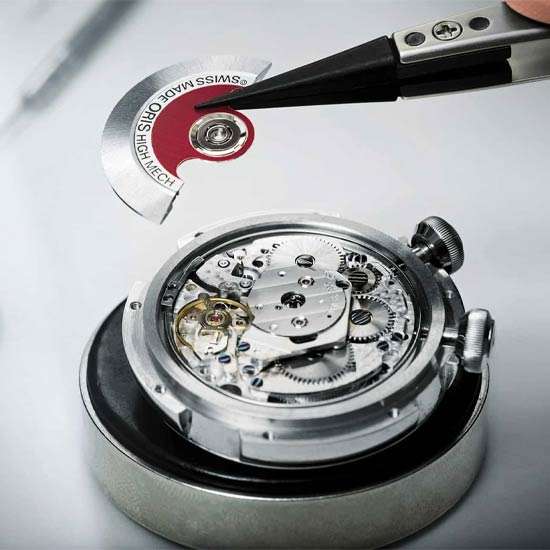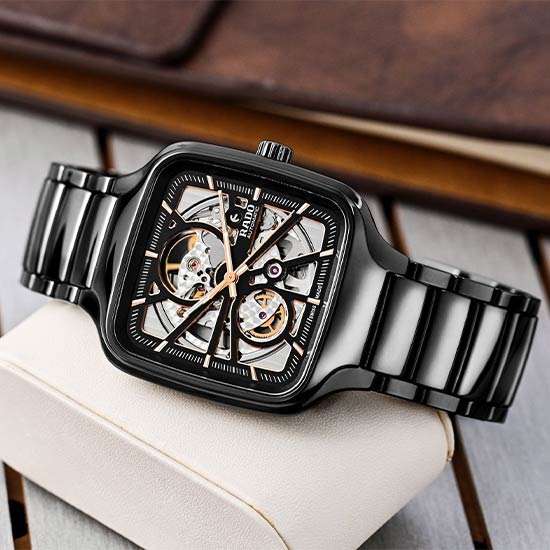- Rose
- News
- 0 likes
- 2203 views
- 0 comments
5 Reasons Why Mechanical Watches Are Worth the Investment
.jpg)
Explore the enduring charm and precision of mechanical watches. Discover why these timepieces are not just accessories but valuable investments.
In a world dominated by digital timekeeping, mechanical watches stand out as timeless testaments to human ingenuity and craftsmanship. While their quartz counterparts offer undeniable convenience, mechanical watches hold a certain allure, a depth of character that transcends mere utility. Owning a mechanical watch is more than just telling time; it's an investment in quality, heritage, and personal expression.
What makes mechanical watches different from Automatic or Quartz Watches?
Quartz watches derive their power from a battery, while mechanical watches rely on wound springs and gears for energy. Crafting mechanical watches demands heightened dedication and precision from watchmakers, as they must consider various factors, including g-force and magnetic fields, to guarantee accurate timekeeping. In essence, mechanical watches represent a more traditional form of timekeeping, showcasing skill and exceptional craftsmanship. Let's delve into five compelling reasons why these intricate machines deserve a place on your wrist.

1. Enduring Craftsmanship
The most fascinating thing about mechanical watches is their craftsmanship. Advanced mechanical watches are built using hundreds of parts so that they can power various functions of a watch. Mechanical watches are intricate symphonies of gears, springs, and balance wheels, meticulously assembled by hand or with high-precision machinery. Each tick and tock is a testament to centuries of watchmaking tradition, a whisper of the skilled artisans who poured their passion into its creation. There's no other way to express it—watchmaking is an incredibly impressive art. Wearing a mechanical watch signifies adorning your wrist with a piece of advanced engineering, the creation of which has required numerous work hours. Owning a mechanical watch is like holding a piece of history, a tangible connection to the past that continues to tick into the future.

2. Timeless Legacy
Mechanical watches are passed from one generation to another, holding sentimental value. While quartz watches have a limited lifespan, often succumbing to battery depletion or electronic failure, mechanical watches, when properly cared for, can become treasured heirlooms passed down through generations. Their robust construction and repairable nature ensure they can withstand the test of time, accumulating character with each passing year. Imagine the stories a well-worn mechanical watch could tell, the lives it's witnessed, the moments it's faithfully kept track of.
3. Investment Potential
Owning a mechanical watch is not just about acquiring a timepiece; it's about investing in the skill and dedication of generations of watchmakers.

Rado True Square Open Heart Men's Watch
4. A Tactile Experience
In a world dominated by touchscreens and digital interfaces, mechanical watches offer a refreshingly tactile experience. The satisfying sensation of winding the crown, the rhythmic ticking against your wrist, and the smooth glide of the hands across the dial – these are sensory delights that no digital display can replicate. Owning a mechanical watch reconnects you to the real world, offering an escape from the digital deluge.
5. An Expression of Individuality
In a sea of mass-produced smartwatches, a mechanical watch is a statement piece, a reflection of your style and discerning taste. With a vast array of designs, from the sleek and minimalist to the intricately ornate, there's a mechanical watch out there to suit every personality. Choose a timepiece that speaks to your unique sense of self and let it be an extension of your individuality.
Owning a mechanical watch is more than just about keeping time. It's an investment in quality, craftsmanship, and heritage. It's a statement of personal style and a connection to something timeless. In a world increasingly dominated by the temporary, they offer a tangible connection to the past and serve as a reminder of the enduring value of quality and tradition. So, if you're looking for a timepiece that transcends mere functionality and offers a touch of magic, consider stepping into the world of mechanical watches. You might just find yourself smitten with their intricate beauty and enduring appeal.
FAQs
1. What is a mechanical watch?
A mechanical watch is a timepiece that relies on mechanical movements, driven by a mainspring, gears, and other intricate components, rather than electronic components like quartz watches.
2. What is the difference between automatic and manual mechanical watches?
Automatic watches wind themselves as the wearer moves their wrist, utilizing a rotor to wind the mainspring. Manual watches require manual winding through the crown to store energy.
3. Do I need to wear my mechanical watch regularly to keep it running?
Regular wear helps an automatic watch stay wound, but manual winding may be necessary for infrequently worn watches to prevent the mainspring from fully unwinding.
4. What is a power reserve indicator on a mechanical watch?
A power reserve indicator shows how much energy is left in the mainspring. It helps users know when to wind their manual watches or when the automatic watch needs additional motion.
5. Do mechanical watches need regular maintenance?
Yes, mechanical watches require periodic servicing every 3-5 years. This involves cleaning, lubricating, and adjusting components to ensure optimal performance.

Comments (0)
New comment